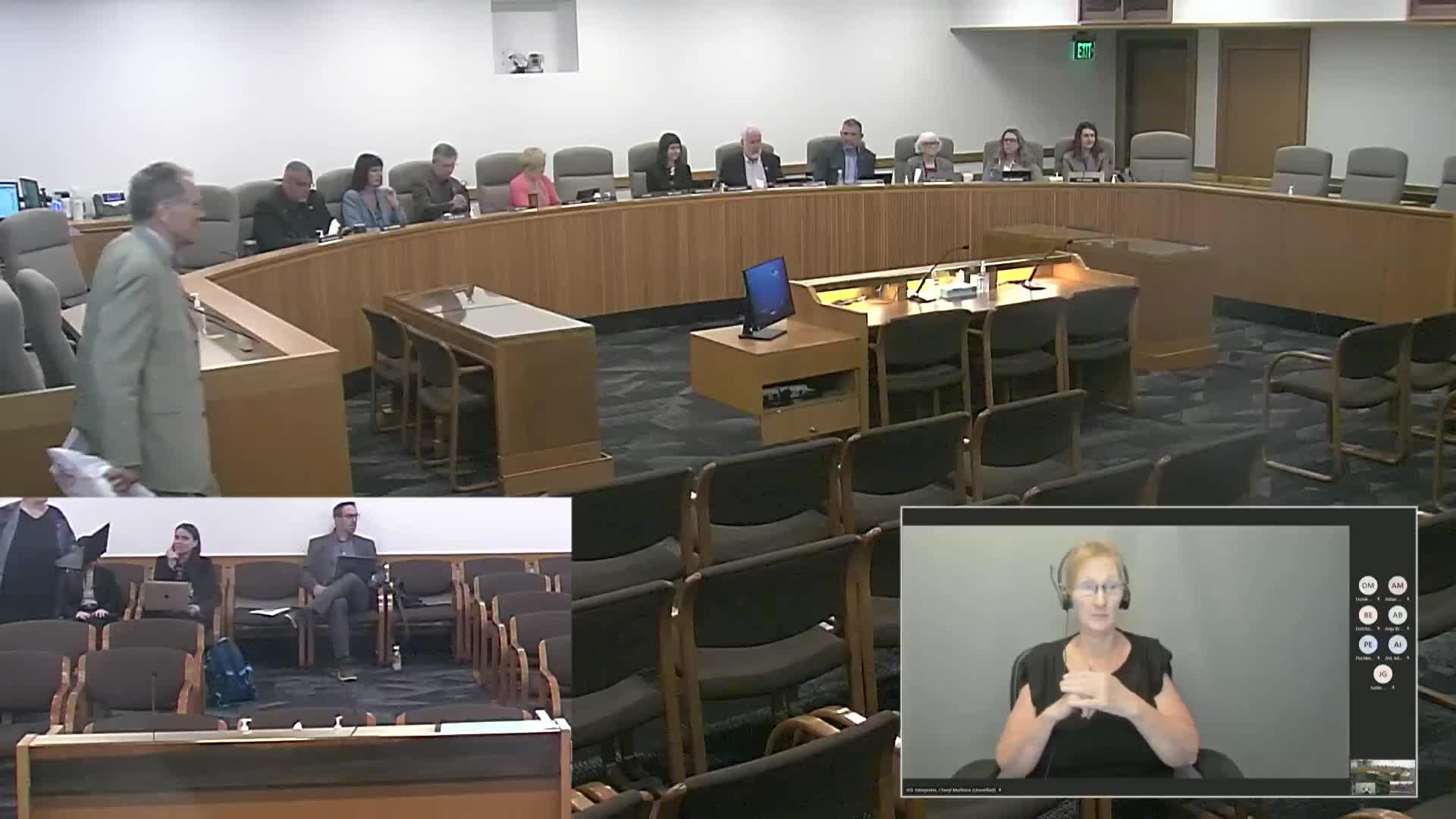Committee hears bill to curb single-use plastics; restaurants and retailers would provide items only on request or as paper
Get AI-powered insights, summaries, and transcripts
Subscribe
Summary
The Senate Committee on Climate, Energy, and Environment held a public hearing on Senate Bill 551 on Oct. 12, 2025, which would prohibit retailers and restaurants from automatically providing single-use plastic checkout bags, plastic utensils and small hotel toiletry containers except when requested and require checkout bags to be paper or customer-provided.
The Senate Committee on Climate, Energy, and Environment held a public hearing on Senate Bill 551 on Oct. 12, 2025, which would prohibit retailers and restaurants from automatically providing single-use plastic checkout bags, single-use plastic utensils and condiment packaging unless requested, and would prohibit lodging establishments from supplying small plastic personal-care containers unless requested.
State Senator Janine Salmon, who introduced the bill, said the measure is intended to reduce plastic waste and the spread of microplastics. "We must do it," Salmon said in testimony, arguing the bill builds on the 2019 statewide plastic bag law by removing thicker single-use plastic bags from circulation and encouraging paper or customer-provided bags.
Supporters at the hearing included elected officials and environmental and business groups. Representative Tom Anderson, a sponsor in the House, described the bill as a follow-up to earlier local and statewide efforts; Representative Courtney Neron said the bill takes a "measured and practical approach" by shifting to on-request distribution for many single-use items. Celeste May, state director of Environment Oregon, told the committee that plastic pollution harms oceans, wildlife and potentially human health through microplastics. Charlie Plybon of the Surfrider Foundation described extensive coastal cleanup work and said the bill targets items that are typically discarded after a single use.
Business and industry witnesses also supported the measure with conditions to manage supply. Sean Miller of the Northwest Grocery Retail Association said most stores have already moved to paper bags and that paper production in Oregon means the policy could benefit pulp and paper businesses. Miller provided cost figures from a member survey, saying the average paper bag cost is about 16 cents while the average plastic bag cost was about 39 cents. He also noted an operative date of Jan. 1, 2027, in section 4 of the bill to allow pulp and paper mills time to scale production; the date was discussed in testimony as intended to avoid a supply shortfall when Californias ban takes effect.
Committee members asked about practical and health-related implications. Representative Wallen and Representative Helm raised questions about hygiene, restaurants and health-care settings; Salmon and other proponents said the bill is designed to allow utensils, condiments and small containers to be provided upon request to avoid creating access problems for people without a private place to store reusable items and to accommodate disability and health needs. Salmon and witnesses noted many hotels already use bulk dispensers for shampoo and conditioner and that the bill would nudge more businesses toward those models.
Several legislators described business models and local examples in which retailers or hotels have voluntarily reduced single-use plastics. Opponents were not recorded in the limited time available; proponents including environmental organizations and retailers urged the committee to advance the bill.
The committee closed testimony on SB 551 after multiple witnesses and did not take a committee vote during the hearing. Written testimony was accepted for 48 hours from the start of the meeting.
